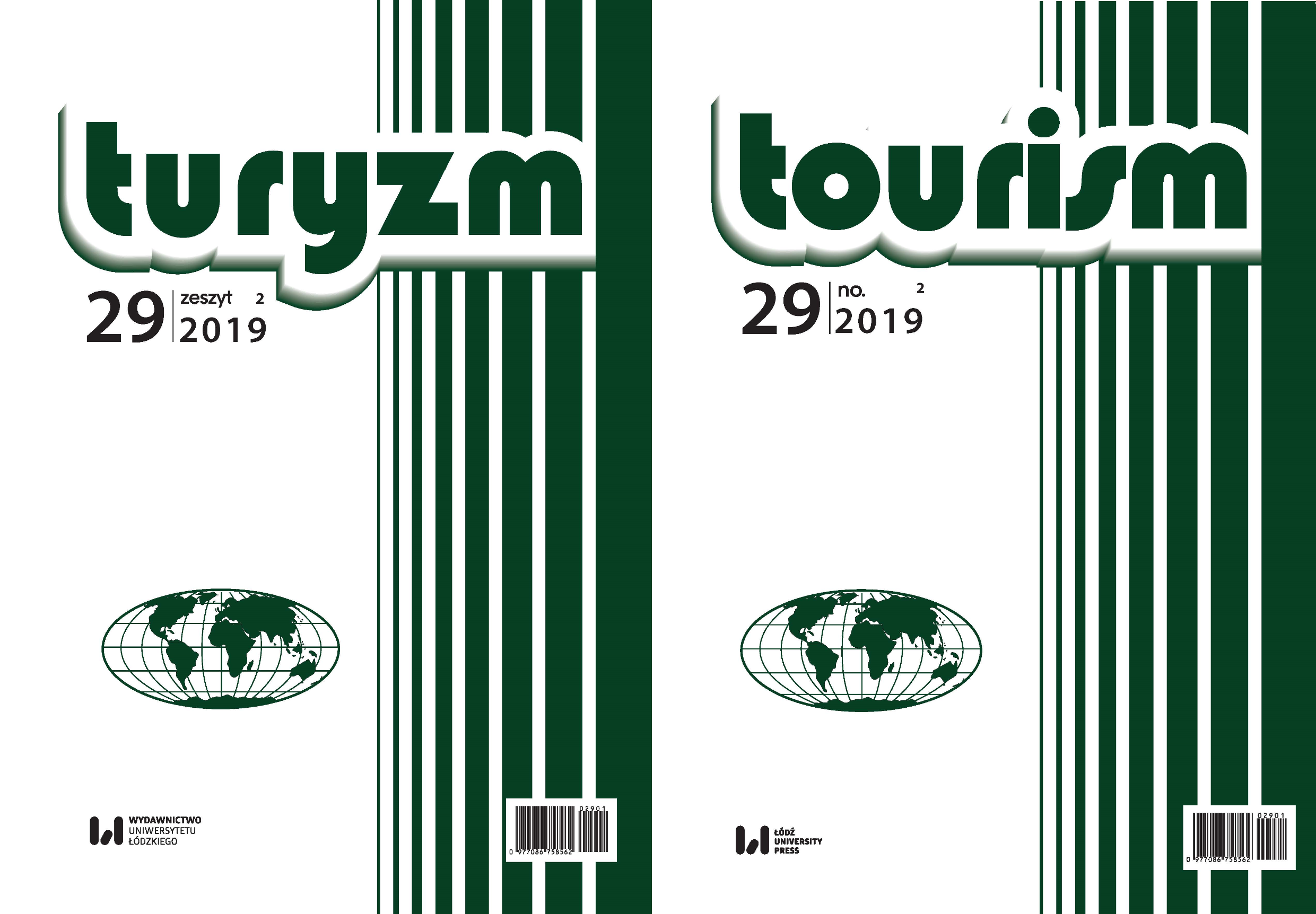The sharing economy and management of a sustainable environment in the tourism sector on a global scale
DOI:
https://doi.org/10.18778/0867-5856.29.2.02Keywords:
sharing economy, sustainability, moral economy, alternative tourismAbstract
The paper will discuss the impact of development of sharing economy on ecological sustainability for the tourism sector at global scale since the main focus in the literature is generally limited to economic and social impacts. It will provide a mathematical model in order to measure the impact of the sharing economy on the welfare of individuals who take part in particular tourism destinations as well as providing benefits for other individuals as a positive external outlook. The development of the model will be dependent on the findings obtained in this study. The results will show that the sharing economy together with collaborative consumption in the tourism sector is an increasing trend in global economy that contributes to ecological sustainability as well. By sharing the means of production, transportation, communication etc both tourists and service providers are capable of decreasing their ecological footprints. In conclusion the paper will contribute to the literature by filling a gap with respect to the lack of connection between environmental sustainability and sharing economy in tourism sector.
Downloads
References
Albinsson, P.A., Yasanthi Perera, B. (2012). Alternative marketplaces in the 21st century: Building community through sharing events. Journal of consumer Behaviour, 11 (4), 303-315.
Google Scholar
Alexander, Z., Bakir, A. (2010). Understanding voluntourism: A Glaserian grounded theory study. In: A.M. Benson (ed.), Volunteer tourism. Theoretical frameworks and practical applications (pp. 9-29). Oxford: Routledge.
Google Scholar
Belk, R. (2010). Sharing. Journal of Consumer Research, 36 (5), 715-734.
Google Scholar
Black, I.R., Cherrier, H. (2010). Anti‐consumption as part of living a sustainable lifestyle: Daily practices, contextual motivations and subjective values. Journal of Consumer Behaviour, 9 (6), 437-453.
Google Scholar
Botsman, R., Rogers, R. (2010). What’s mine is yours. The rise of collaborative consumption. New York, NY: Harper Business.
Google Scholar
Butcher, J. (2003). The moralization of tourism: Sun, sand… and saving the world? London: Routledge.
Google Scholar
Dubois, E., Schor, J., Carfagna, L. (2014, Spring). Connected consumption: A sharing economy takes hold. Rotman Management, 50-55.
Google Scholar
Frick, K., Hauser, M., Gürtler, D. (2013). Sharity: Die Zukunft des Teilens, GDI-Studie. Rüschlikon, Zürich: Gottlieb Duttweiler Institute.
Google Scholar
Fullagar, S., Markwell, K., Wilson, E. (eds) (2012). Slow tourism: Experiences and mobilities. Bristol, UK: Channel View Publications.
Google Scholar
Glind, P.B. van de (2013). The consumer potential of collaborative consumption: Identifying the motives of Dutch collaborative consumers & measuring the consumer potential of collaborative consumption within the municipality of Amsterdam. Master’s thesis. Utrecht: Utrecht University, Faculty of Geosciences Theses.
Google Scholar
Haenfler, R., Johnson, B., Jones, E. (2012). Lifestyle movements: Exploring the intersection of lifestyle and social movements. Social Movement Studies, 11 (1), 1-20.
Google Scholar
Hamari, J., Sjöklint, M., Ukkonen, A. (2015). The sharing economy: Why people participate in collaborative consumption. Journal of the Association for Information Science and Technology, 67 (9), 2047-2059.
Google Scholar
Heinrichs, H. (2013). Sharing economy: A potential new pathway to sustainability. Gaia, 22 (4), 228-231.
Google Scholar
Jänicke, M., Kunig, P., Stitzel, M. (1999). Study and Workbook Environmental policy: Policy, law and management of environmental protection in state and enterprise. Bonn, Germany: Dietz.
Google Scholar
Kant, I. (2002). Groundwork for the metaphysics of morals. Edited and translated by Allen W. Wood. Binghamton, New York: Vail-Ballou Press.
Google Scholar
Lyons, K., Hanley, J., Wearing, S., Neil, J. (2012). Gap year volunteer tourism: Myths of global citizenship? Annals of Tourism Research, 39 (1), 361-378.
Google Scholar
McNeill, J.R. (2003). Blue planet: The history of environment in 20th century. Frankfur, Germany: Campus Verlag.
Google Scholar
Molz, J.G. (2013). Social networking technologies and the moral economy of alternative tourism: The case of couchsurfing. Org. Annals of Tourism Research, 43, 210-230.
Google Scholar
Owyang, J., Samuel, A., Grenville, A. (2014). Sharing is the new buying: How to win in the collaborative economy. Vancouver, BC: Vision Critical and Crowd Companies.
Google Scholar
Pink, S. (2008). Re-thinking contemporary activism: From community to emplaced sociality. Ethnos, 73 (2), 163-188.
Google Scholar
Rentmeester, C. (2010). A kantian look at climate change. Essays in Philosophy, 11 (1), 76-86.
Google Scholar
Sayer, A. (2004). Moral economy. Lancaster: Department of Sociology, Lancaster University.
Google Scholar
Schiel, F. (2015). The phenomenon of the sharing economy in Germany: Consumer motivations for participating in collaborative consumption schemes. Master thesis. Enschede: University of Twente.
Google Scholar
Scholl, G., Schulz, L., Süßbauer, E., Otto, S. (2010). Benefit instead of possessing perspectives for resource-efficient consumption through innovative services. Resource efficiency paper, 12.4. Berlin, Germany: Wuppertal-Institut.
Google Scholar
Schönfeld, M. (2008). The green Kant: Environmental dynamics and sustainable policies. In: L.P. Pojman, P. Pojman (eds), Environmental Ethics: Readings in theory and application (pp. 49-60). Belmonth: Thomson-Wadsworth.
Google Scholar
Schor, J. (2016). Debating the sharing economy. Journal of Self-Governance and Management Economics, 4 (3), 7-22.
Google Scholar
Downloads
Published
How to Cite
Issue
Section
License

This work is licensed under a Creative Commons Attribution-NonCommercial-NoDerivatives 4.0 International License.










